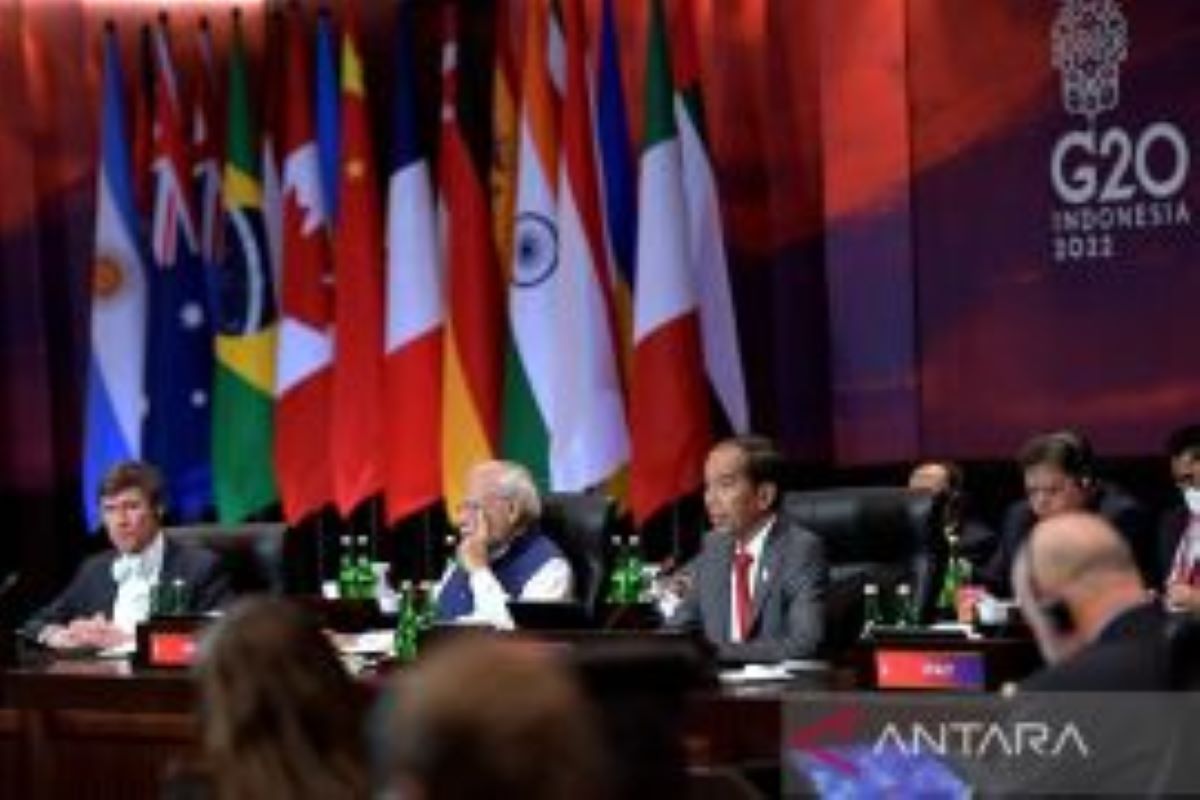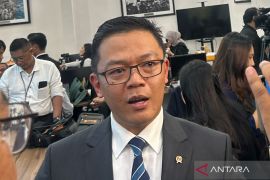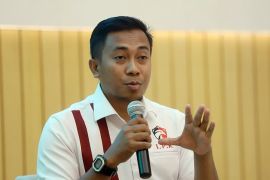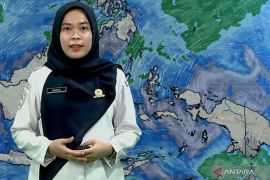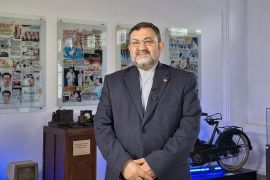Jakarta (ANTARA) - Indonesia has just completed the important task of serving as the G20 president for 2022. The task was considered heavy and challenging because during its chairmanship, Indonesia had to deal with complicated and "unusual" global situations.
The impact of the COVID-19 pandemic, which hasn't ended yet, the food and energy crises, the economic crisis, the shadow of a recession, climate change, and the war in Ukraine complicated the tasks that Indonesia had to carry out as the president of the G20.
Realizing the difficult global situation and crises, Indonesia worked hard during its G20 presidency by trying to continue the agendas that had not been completed during the previous presidency as well as formulating a road map for global recovery, according to President Joko Widodo (Jokowi).
As a grouping of major powers and countries with global influence, the G20 has a duty to lead the world to recovery, and Indonesia, as its president, was expected to come up with concrete results through the forum.
This is because the G20 countries account for 80 percent of the global gross domestic product (GDP), 75 percent of international trade, and 60 percent of the global population.
After taking over the G20 Presidency on December 1, 2021, Indonesia chose the theme of "Recover Together, Recover Stronger,” which covered three strategic issues—strengthening the global health architecture, ensuring digital-based economic transformation, and supporting the transition to sustainable energy.
In the one year it led the G20, Indonesia organized several working groups and dialogue forums related to the three priority issues before the final summit in Bali on November 15–16, 2022.
A total of 17 heads of state from South Africa, the United States, Saudi Arabia, Argentina, Australia, India, Britain, Italy, Japan, Germany, Canada, South Korea, France, China, Turkey, and the European Union attended the summit in person.
Representatives of international organizations such as the World Health Organization, World Bank, International Monetary Fund, Asian Development Bank, leaders of multinational companies, and several influential world figures, including Elon Musk and Anne Hathaway, also participated in the event.
Under the Indonesian Presidency, the G20 Summit succeeded in adopting the Leaders' Declaration that contains 52 paragraphs, which cover all three priority issues of the Indonesian presidency, including the need to uphold international law and the multilateral system and commitment to dealing with economic crises, including through international macro policy cooperation.
The Leaders' Declaration also covers adopting digital technology, building and strengthening the health sector, achieving sustainable development goals (SDGs), including tackling climate change.
According to President Widodo, the most debated of the 52 paragraphs was the one concerning the attitude toward the war in Ukraine, namely condemnation or punishment for the violation of regional boundaries, which resulted in people suffering and aggravated the global economy.
Foreign Minister Retno Marsudi said that Indonesia pursues a free and active foreign policy, that means, it is free to form its own opinions and is active in contributing to efforts to realize world peace.
Indonesia is also said to always uphold the principles of the UN Charte "When we talk about the issue of territorial integrity, I think Indonesia's decision is very clear and consistent," she said.
In addition to the 52 paragraphs, the declaration also contains an attachment regarding inclusive recovery efforts and a list of cooperation projects under the G20 mechanismThe document, according to Marsudi, was prepared to fulfill Indonesia's promise, as president of the G20, to strengthen concrete cooperation.
“So, there are 361 forms of cooperation in the attachment to the declaration. And during the presidency, Indonesia also synergized strengthening cooperation in a bilateral context with the G20 countries in three priority sectors, and there were 140 cooperation programs. I think once again, apart from the achievement of the declaration itself, we have done many things to bring the G20 to the ground for the benefit of the people," she explained.
Concrete results
Indonesia's G20 Presidency has also produced concrete results, such as strengthening the global health architecture by establishing a pandemic fund, which has collected more than US$1.5 billion from 24 countries, including from G20 and non-G20 member countries and 3 philanthropic institutions.
Poor and developing countries, including Indonesia, can now submit proposals for the use of funds with a funding scheme using a grant instrument.
Meanwhile, to support the sustainable energy transition, an energy transformation mechanism (ETM) country platform has been formed in Indonesia by accelerating the closure of coal-fired power plants and the development of fair and sustainable renewable energy.
Under the energy transition mechanism, especially for Indonesia, a funding commitment of US$20 billion has been obtained from the Just Energy Transition Program (JETP).
In addition, financial support for ETM from Climate Investments Funds and collaborations with international institutions have also been realized, including the country platform, which was eventually managed by PT Sarana Multi Infrastruktur (SMI).
In terms of digital transformation, real action has taken the form of payment system support to prepare a digital-based post-pandemic economy, namely central bank digital currencies (CBDC) and Regional Payment Connectivity (RPC) in ASEAN countries.
Increasing financial inclusion for vulnerable groups, namely through the Yogyakarta Financial Inclusion Framework to encourage the productivity of MSMEs, women, and young people has also become real action in this field.
Global collaboration is being used to address the issue of food insecurity, which is being prepared in countries with the initiative of holding the G20 finance ministers and agriculture ministers meeting.
The Indonesian G20 presidency also asked the World Bank Group (WBG) and the Food and Agriculture Organization (FAO) to map the gaps in the global response to food insecurity as well as identify gaps in funding needs.
Another concrete achievement was supporting the availability of financing for vulnerable and poor countries through the establishment of a resilience and sustainability trust (RST) by the IMF, which has reached US$81.6 billion.
Indonesia's G20 Presidency helped overcome the debt crisis of poor and developing countries with the debt-restructuring program through a common framework for debt treatment.
Then, it encouraged an increase in the funding capacity of multilateral development banks (MDBs).
On the infrastructure side, the Indonesian G20 Presidency carried out infrastructure development through the formulation of quality infrastructure investment indicators.
Furthermore, it encouraged international tax cooperation, namely the Asia Initiative Bali Declaration, as a forum for cooperation on tax transparency in the region and the implementation of global tax agreements in the two pillars of taxation.
Indonesia's last real G20 action was to strengthen the financial resilience of the global financial safety net (GFSN).
All the results achieved during the G20 presidency in 2022 were in accordance with the theme “Recover Together, Recover Stronger,” which prioritized an equitable recovery for all countries, including developing and poor countries.
Appreciated
Marsudi said the approval of the Bali Leaders' Declaration by the G20 leaders proved the world's trust in Indonesia.
She explained that the process of reaching an agreement on the declaration was very long, and was even carried out through several rounds of negotiations. The final negotiations were carried out on November 10–14, 2022, or just one day before the G20 Summit took place.
Marsudi further revealed that at the beginning of Indonesia's G20 presidency, many parties were pessimistic that Indonesia would produce a declaration given the difficult world situation.
"So this is an extraordinary effort, by using diplomacy assets that have been around for a long time, Indonesia is trying to bridge all the differences that exist (among G20 members)," she said.
Indonesia's hard work and leadership of the G20 forum have been appreciated by a number of countries.
Canadian Prime Minister Justin Trudeau said he believes that Indonesia is capable of leading the G20 in the midst of a difficult situation and political tension, and has succeeded in bringing about a final agreement, the Bali Leaders' Declaration.
Trudeau acknowledged that the process of reaching a consensus or agreement at the G20 forum is never easy, especially when there are certain issues that have an impact on the world economy, which involve many actors, and when countries have different perspectives.
"However, thanks to the efforts made by Indonesia, and once again we must acknowledge President Joko Widodo's leadership—because it is through his leadership that all members of the G20 can find consensus," he said.
He added that the Bali Declaration succeeded in outlining a firm statement of position, especially in response to the Russian invasion of Ukraine and its impact, which could trigger a food crisis and global economic turmoil.
Baca juga: Finding cultural routes to recovery, sustainable living
He considered the Bali Declaration to contain a number of quite ambitious targets, especially those related to climate action and global health architecture. Nevertheless, Trudeau said that the world expects a lot from the G20 so it is only fitting for the world's largest economic forum to set ambitious targets.
Canada, he said, understands the various challenges faced by Indonesia and other countries in the world.
Climate change, energy security, efforts to create a world without emissions or low emissions, and efforts to create decent jobs—so that everyone can provide for their families—were some of the challenges he listed.
Meanwhile, British Prime Minister Rishi Sunak praised the Indonesian Presidency for prioritizing the discussion of global economic and financial matters at the G20 Summit in Bali.
G20 members at the G20 Summit meeting tried to strengthen the economic foundation and help the most vulnerable groups, especially in matters of food availability. The meeting also discussed reducing dependence on fossil fuels from Russia.
According to Sunak, President Widodo, while chairing the G20 Summit, will need to put the discussion on public finance in its place.
During the G20 Summit meeting, according to him, the Indonesian G20 Presidency asked countries in conflict to overcome war and prioritize solidarity.
"Also working together to face challenges, ensuring we fight inflation together, ensuring a transition to energy that is safer and friendlier," said Sunak.
While UN Secretary General Antonio Guterres said that Indonesia has demonstrated a great ability to bring parties together for dialogue and push for solutions, French President Emmanuel Macron said the G20 summit in Bali had succeeded in sending a clear message to end the Russia-Ukraine war.
While stressing that the G20 had not turned a blind eye to war, Macron explained that the grouping of countries highlighted there was still room for talks, including with developing countries such as China and India, to push Russia to end the conflict.
"Now is the time for Russia to hear the message conveyed by the international community and return to the negotiating table," he said.
Pewarta : Yashinta Difa Pramudyani
Editor:
I Komang Suparta
COPYRIGHT © ANTARA 2026
